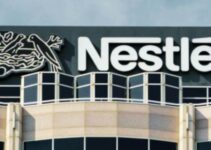Unilever is a fast-moving consumer product manufacturing British multinational company. Samuel Van Den Bergh, William Hulme Lever, and Anton Jurgens founded the company in 1929. Today, we’ll discuss the supply chain analysis of Unilever; it focuses on various SCM elements like procurement planning, inventory management, warehousing, automation, transportation, and distribution.
Supply Chain Analysis of Unilever
Let’s discuss the main elements of the supply chain analysis of Unilever are as follows;
Suppliers Network
Unilever has established a very large supplier network comprising over 52000 suppliers and vendors in roundabout 155 countries across the globe. Out of which, the raw material-providing suppliers are in 92 countries; packaging suppliers are in 82 countries, and the contract manufacturing suppliers are in 69 countries. The large and diversified worldwide supplier network would help the company to ensure the smooth availability of raw supplies, materials, parts, and goods without any disruptions and delays.
Responsible Sourcing
Unilever is highly careful and cautious about responsible sourcing of raw materials, supplies, and parts. The consumer goods manufacturing brand regularly evaluates and audits the suppliers to ensure their compliance with the regulatory requirements and standards. However, Unilever puts a great emphasis on improving the working conditions and the working environment of the supplier’s employees. The company regularly evaluates suppliers to ensure their compliance with standard working conditions and human rights standards.
Suppliers Partnership Programs
Unilever has the UPWP (Unilever Partner with Purpose) program which focuses on promoting nature, sustainable living, and industry-leading innovations. The UPWP program focuses on the following principles and they’re as follows;
- The brand with the purpose grow
- People with purpose thrive
- Community with purpose last
UPWP programs allow the brand to proactively respond to the changing market trends and develop a closer relationship with suppliers and partners. It focuses on motivating suppliers and partners toward responsible operations, innovation, and a transparent network. However, the brand is developing an ecosystem environment that creates opportunities for all. The consumer goods manufacturing brand is collaborating and coordinating with all ranging from small startups to large multiple partners.
Production and Manufacturing Factories
Unilever has a very large network of approximately 280 production and manufacturing factories in 150 countries around the world. The production factories play a key role in transforming raw materials, suppliers, and parts into the finished product. However, they receive material, supplies, parts, and components from the company’s authorized suppliers and vendors; perform various productions and manufacturing operations, and manufacture the desired product for the end consumers.
Warehouses and Distribution Centers
Unilever has a network of approximately 500 warehouses and distribution centers. They receive finished goods and consumer products from the company’s production and manufacturing factories; temporarily store them, package them, and label them before shipping them to the retail stores and the end consumers. The consumer goods brand has built its warehouses and distribution centers in specific geographical regions near the retail consumer market. It helps the company to decrease the distance, and delivery time and save transportation costs.
Tech Integration
Unilever has integrated the latest technological tools, applications, and equipment in its supply chain network to achieve efficiency. For instance, the consumer goods brand employs mobile devices, and it helps the company to recognize the traffic jam pattern between the supplier’s farm and the production factories. The insight would help the company to source from the right suppliers to decrease the distance and delivery timing.
Unilever is also employing AI and ML technology and it helps the consumer goods manufacturing brand in efficient and smart decision making. The data analytical tools would help the company to recognize various types of patterns and perform demand forecasting of right stock in the upcoming. It allows the company to recognize the low-performing SKU and order the top-performing SKU.
Digital Automation
Unilever is employing digital technology in its supply chain network and operations. They comprise AI tools, web applications, and mobile and smart devices that help customers to make quickly, smartly, and efficiently without any delays. For instance, the consumer goods brand has made its supply chain network transparent and visible and it helps the company to know what is happening in its supply chain and earn the trust and confidence of customers.
Sustainability Initiative
Unilever has made a strong commitment to nature and the environment by taking various sustainable steps to decrease the carbon emission rate; reduce the usage and consumption of plastic in its supply chain network, and promote sustainable living. Some of the main sustainable initiatives of the company are as follows;
- Local sourcing and decreasing the distance and transport to decrease carbon emission
- Switching towards renewable sources of energy in its warehouses
- Electric vehicles and fuel-efficient transport channels
Logistics and Transportation
Unilever employs various transportation and 3rdparty logistics service providers for the transportation and distribution of products and goods. The large and worldwide distribution network would help the company to deliver the products and goods from the suppliers to the production and manufacturing facilities, warehouses, and retail stores.
Conclusion: Unilever Supply Chain Analysis | Unilever Supply Chain Management
After an in-depth study of the supply chain analysis of Unilever; we have realized that Unilever is the world’s leading consumer goods manufacturing brand. If you are learning about the Unilever supply chain analysis; then you should keep in mind the abovementioned SCM elements; procurement, planning, transportation, automation, inventory management, and sortation.
Ahsan is an accomplished researcher and has a deep insight in worldly life affairs. He goes Live 3 days a week on various social media platforms. Other than research writing, he’s a very interesting person.


